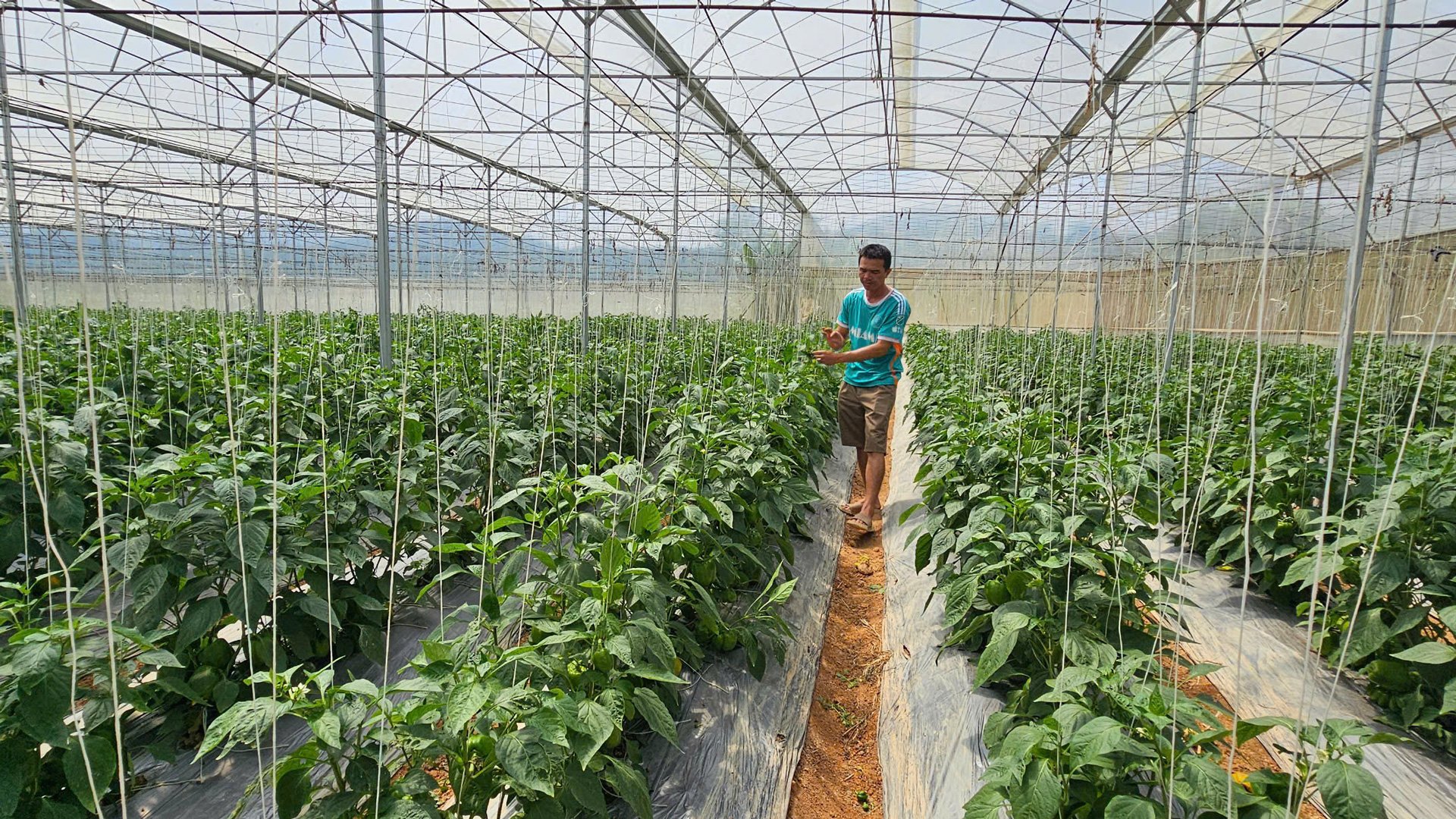 |
| Nearly 100% of Tay and Nung ethnic households in Phi Lieng commune participate in high-tech agricultural production. |
More than three decades ago, Tay and Nung ethnic families from the northern mountainous provinces traveled thousands of kilometers to Phi Lieng (former Lam Ha district) to start a new economy. They brought with them aspirations to change their lives, but also many concerns about life in a new land with many difficulties.
In the first years of setting foot on this red basalt land, people could only rely on rice fields and coffee trees. However, the farming was fragmented, lacking techniques, and heavily dependent on market prices, so their lives were still precarious, lacking everything. “In the first years, people encountered many difficulties. There was a crop where coffee prices dropped, and sales were only enough to cover investment and living expenses, not enough to make ends meet,” Mr. Tran Dinh Luu - Head of Thanh Binh village recalled.
Thanks to the right orientation and enthusiastic guidance of local authorities, many Tay and Nung ethnic households have begun to change their production mindset. From monoculture of coffee, they have boldly switched to growing mulberry and raising silkworms. Although it is a new model, it is suitable for the local climate and soil conditions. The lush green mulberry gardens stretching at the foot of the hills, interspersed with coffee areas and white silkworm trays in the house have opened up opportunities for people to escape poverty sustainably. “This is a new profession, requiring meticulousness, but the results are more obvious: The initial investment cost is quite modest, mulberry is easy to grow, silkworms are easy to raise, the turnover is fast and the output is quite stable, so people are more confident in sticking with the profession. Many households have doubled or tripled their income compared to before, so people's lives are increasingly improved. However, due to the unstable quality of silkworm breeds, the mulberry area is intercropped with coffee, so the quality of mulberry leaves is also affected by pesticides. Currently, there are only a few households maintaining the profession of growing mulberry and raising silkworms,” said Mr. Chu Van Lam - Secretary of the Thanh Binh village Party Cell.
According to Mr. Chu Van Lam, the whole village has over 278 households, of which Tay and Nung ethnic groups account for about 70 households. Due to objective factors and the potential and advantages in local socio-economic development, in recent years, many Tay and Nung ethnic households have switched to new production models with higher economic efficiency. From traditional farming (growing rice and mulberry), most people have participated in high-tech agricultural production with an area of nearly 20 hectares: growing organic vegetables, tubers and fruits in greenhouses, outdoors, using drip irrigation systems, controlling the growing environment, etc.
The rows of tomatoes and green bell peppers, bearing fruits in rows, are the result of the hard work and constant learning of the local people. In addition, the support of the Phi Lieng High-Tech Agricultural Cooperative plays an important role in this transformation process. The cooperative has helped people access new techniques, link production and product consumption, reduce risks and increase the value of agricultural products.
Not only farming, some households also know how to promote traditional occupations. From the Quy Thoa traditional rice paper production facility of Mr. Luan Van Quy - Ms. Trieu Thi Thoa's family, which has been recognized as a 3-star OCOP, up to now, the Tay village has developed nearly a dozen new establishments such as: Loc Viet Chien, To Thi Hien, Vien Van Dinh, The Anh, Tho Cuc... "Previously, the products were not enough to meet market demand, now that there is a brand, we can mobilize more households to join in expanding the production scale, contributing to increasing income and most of all, preserving the traditional occupation left by our ancestors", Mr. Luan Van Quy shared with pride.
Changes in thinking and action have brought about clear results. Many households have bought cars for daily life, built spacious houses, some have invested billions in farms and expanded production facilities. Together with other localities in the district, Phi Lieng commune today is a living proof of the journey of overcoming difficulties and rising to master the lives of ethnic minorities from the northern provinces in this land.
Mr. Ngo Manh Cuong - Chairman of the Vietnam Fatherland Front Committee of Phi Lieng Commune, Dam Rong District, said: "In recent years, the Tay and Nung ethnic people in the commune have focused on economic development in a remarkable way, the rate of poor households of Tay and Nung people is only 1 to 2 households. Many areas of greenhouses, net houses, applying high technology to cultivation have been effectively implemented by the people, earning an income of 500 - 600 million VND/year".
Source: https://baolamdong.vn/kinh-te/202505/doi-thay-tren-vung-dat-moi-4420409/


![[Photo] 12th grade students say goodbye at the closing ceremony, preparing to embark on a new journey](https://vphoto.vietnam.vn/thumb/1200x675/vietnam/resource/IMAGE/2025/5/28/42ac3d300d214e7b8db4a03feeed3f6a)

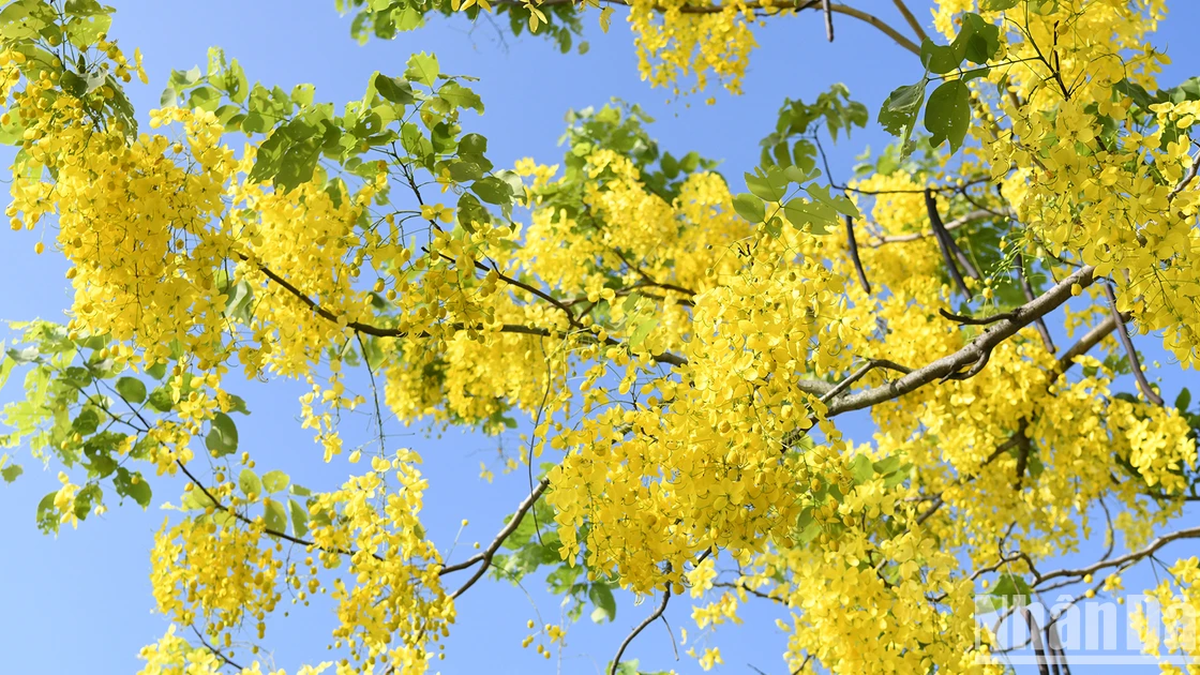

![[Photo] Vietnamese and Hungarian leaders attend the opening of the exhibition by photographer Bozoky Dezso](https://vphoto.vietnam.vn/thumb/1200x675/vietnam/resource/IMAGE/2025/5/28/b478be84f13042aebc74e077c4756e4b)
![[Photo] Prime Minister Pham Minh Chinh receives a bipartisan delegation of US House of Representatives](https://vphoto.vietnam.vn/thumb/1200x675/vietnam/resource/IMAGE/2025/5/28/468e61546b664d3f98dc75f6a3c2c880)
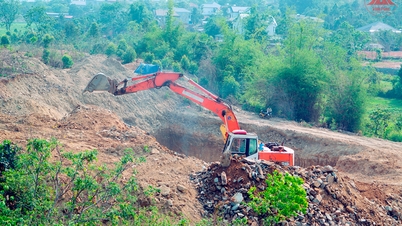



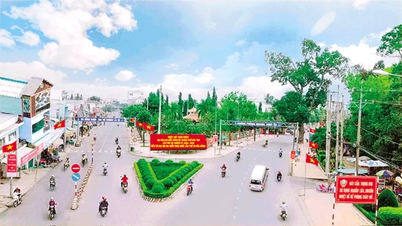


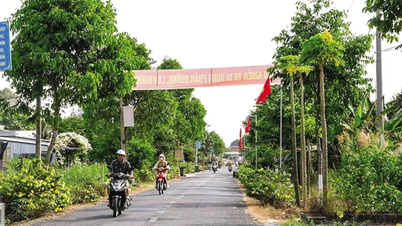
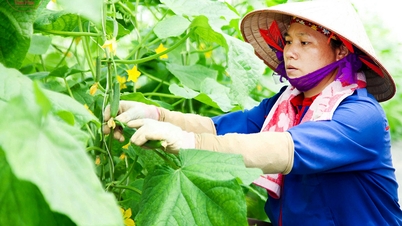






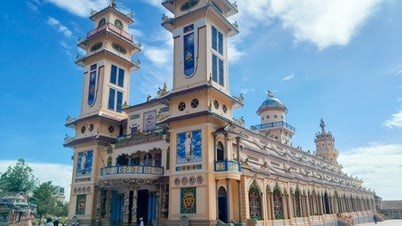












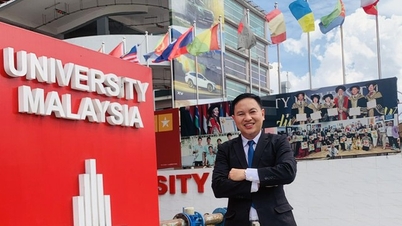










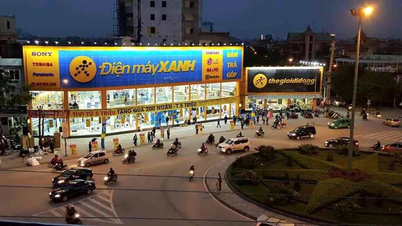

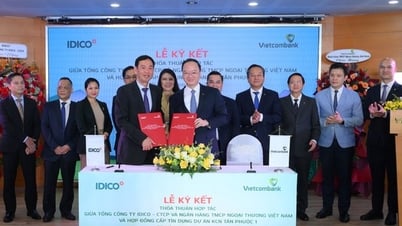









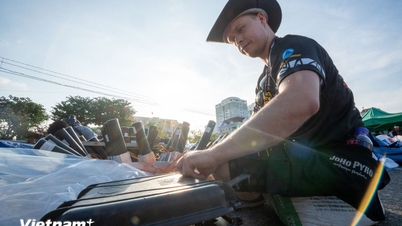





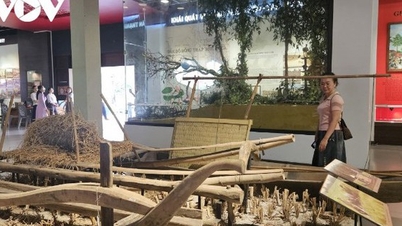



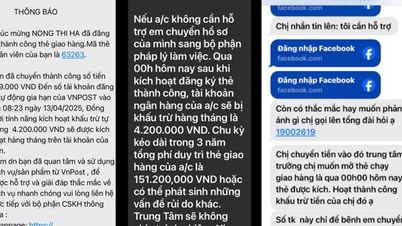


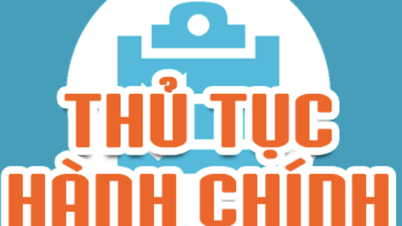
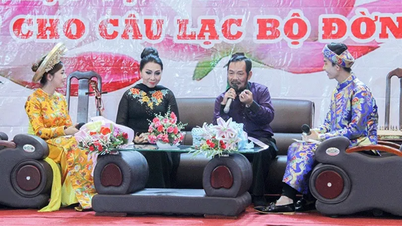

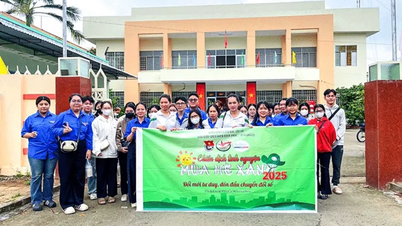










Comment (0)